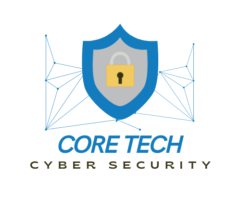Navigating the myriad of cybersecurity certifications available can be overwhelming, especially when trying to determine which ones align best with your career goals and current experience level. To help you chart a course through the certification landscape, here’s a comprehensive roadmap detailing various cybersecurity certifications and how to choose the right ones for your career path.
1. Starting Out: Entry-Level Certifications
For those new to cybersecurity, entry-level certifications provide a solid foundation and are ideal for getting started in the field.
- CompTIA Security+:
- Focus: Basic security concepts, network security, and risk management.
- Ideal For: Beginners and those transitioning into cybersecurity.
- Benefit: Widely recognized and provides a broad introduction to cybersecurity.
- Certified Cybersecurity Entry-level Technician (CCET):
- Focus: Fundamental cybersecurity skills and knowledge.
- Ideal For: Individuals new to cybersecurity looking for foundational credentials.
- Benefit: Tailored for entry-level roles and emerging certification in the industry.
- Cisco Certified CyberOps Associate:
- Focus: Security operations, network security, and incident response.
- Ideal For: Those interested in security operations and Cisco technologies.
- Benefit: Provides practical skills for security operations roles.
2. Building Core Skills: Intermediate Certifications
Once you have foundational knowledge, intermediate certifications help you specialize and advance your career.
- Certified Ethical Hacker (CEH):
- Focus: Ethical hacking, penetration testing, and security assessment techniques.
- Ideal For: Those interested in penetration testing and ethical hacking.
- Benefit: Provides hands-on skills and real-world hacking knowledge.
- (ISC)² Systems Security Certified Practitioner (SSCP):
- Focus: Implementing and managing IT security.
- Ideal For: Professionals seeking to validate their ability to administer and manage security systems.
- Benefit: Emphasizes practical skills in managing and protecting IT infrastructure.
- Certified Information Systems Auditor (CISA):
- Focus: Auditing, control, and assurance.
- Ideal For: Those interested in IT audit, control, and assurance roles.
- Benefit: Recognized for skills in auditing and assessing IT systems and controls.
3. Specializing: Advanced Certifications
For those looking to specialize or move into higher-level roles, advanced certifications provide deeper knowledge and leadership credentials.
- Certified Information Systems Security Professional (CISSP):
- Focus: Comprehensive cybersecurity knowledge across multiple domains.
- Ideal For: Experienced security professionals, managers, and executives.
- Benefit: Demonstrates expertise in managing and directing security programs.
- Certified Information Security Manager (CISM):
- Focus: Information security management and governance.
- Ideal For: Professionals aiming for management or strategic roles.
- Benefit: Validates skills in managing and overseeing security programs and policies.
- Certified Cloud Security Professional (CCSP):
- Focus: Cloud security and compliance.
- Ideal For: Professionals working with cloud technologies and services.
- Benefit: Demonstrates expertise in securing cloud environments and services.
4. Expert-Level: Mastery and Specialized Roles
For those at the pinnacle of their careers or aiming for specialized roles, expert-level certifications offer advanced knowledge and leadership credentials.
- Offensive Security Certified Professional (OSCP):
- Focus: Advanced penetration testing and offensive security techniques.
- Ideal For: Experienced penetration testers and security experts.
- Benefit: Recognized for its challenging, hands-on exam and practical skills.
- Certified Information Systems Security Professional – Architecture (CISSP-ISSAP):
- Focus: Security architecture and engineering.
- Ideal For: Experts in designing and engineering security solutions.
- Benefit: Specialized knowledge in security architecture and design.
- Certified Information Systems Security Professional – Management (CISSP-ISSMP):
- Focus: Security management and leadership.
- Ideal For: Security leaders and managers looking to enhance their strategic skills.
- Benefit: Advanced management skills and strategic insight in cybersecurity.
Choosing the Right Path
1. Assess Your Current Experience and Goals: Identify where you are in your career and what skills you need. Entry-level certifications are great for starting out, while intermediate and advanced certifications are better suited for those with some experience.
2. Consider Your Career Path: Decide if you want to focus on operational roles, ethical hacking, management, or specialized areas like cloud security. Choose certifications that align with your career goals.
3. Evaluate Certification Requirements: Look into the prerequisites, such as experience or other certifications, for each credential. Ensure you meet these requirements or are prepared to gain the necessary experience.
4. Plan for Continuing Education: The cybersecurity field is dynamic, and continuing education is essential. Be prepared for ongoing learning and recertification to keep your skills current.
By following this roadmap and selecting the right certifications based on your experience level and career aspirations, you can effectively enhance your expertise and advance in the field of cybersecurity.
